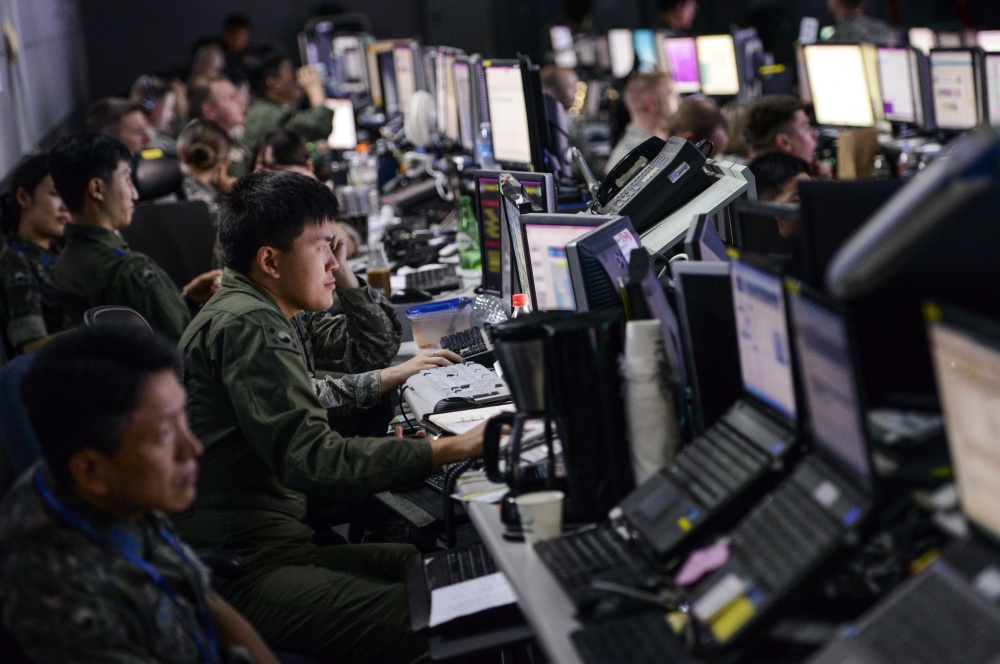
Members from US and Republic of Korea militaries man the Hardened Theater Air Control Center, at Osan AB, ROK, during the first day of Ulchi Freedom Guardian, Aug. 17, 2015. UFG is held annually to strengthen the US-ROK alliance commanders’ and staff members’ ability to translate information into actionable decision-making. Portions of the image were blurred for security concerns. USAF photo by A1C John Linzmeier.
The US is not currently considering a Chinese proposal that would see North Korea halt its nuclear weapons program in exchange for the cancellation of annual military drills between the US and Republic of Korea forces.
Because of the need to remain vigilant, US forces in Korea are almost always exercising. A typical year includes some 30 exercises. Scrapping the exercises, such as Ulchi Freedom Guardian, which is scheduled to begin Monday, is “not currently on the table as part of the negotiation at any level,” Chairman of the Joint Chiefs of Staff Gen. Joseph Dunford told reporters Wednesday in Beijing, according to Reuters. UFG is one of the largest world’s largest military exercises and it is focused on defending the ROK. (See also: Keeping Peace in Korea from the November 2016 issue of Air Force Magazine.)
“My advice to our leadership is that we not dial back our exercises,” Dunford said. “The exercises are very important to maintaining the ability of the alliance to defend itself.” He insisted that, “as long as the threat in North Korea exists, we need to maintain a high state of readiness to respond to that threat.”
From the beginning, the swap suggested by Beijing outlined “an extraordinarily biased proposal,” Bruce Bennett, a senior defense researcher for the RAND Corporation, told reporters on a conference call Wednesday. “It’s hard to imagine why the US would ever accept that.”
The problem, Bennett explained, is that “North Korea also does extensive exercises for invading South Korea?” every year. Pyongyang begins those drills in the winter, he said, “so that by the March timeframe, which is roughly optimal for invasion of South Korea, given weather and such, they are ready and their troops are maximally trained.”
In the context of these North Korean exercises, Bennett said, “It’s no surprise that the US and South Korea do a major exercise in March [known as Foal Eagle] to prepare their forces to respond should North Korea decide, out of surprise, to turn the exercise into an invasion.”
Because of the threat of invasion from the North, Bennett said the Chinese proposal “needs to be balanced.” If North Korea agreed to give up its nuclear weapons program and cancel its own exercises as well, in exchange for a halt in US-ROK exercises, “that’s the kind of trade that might be considered.”